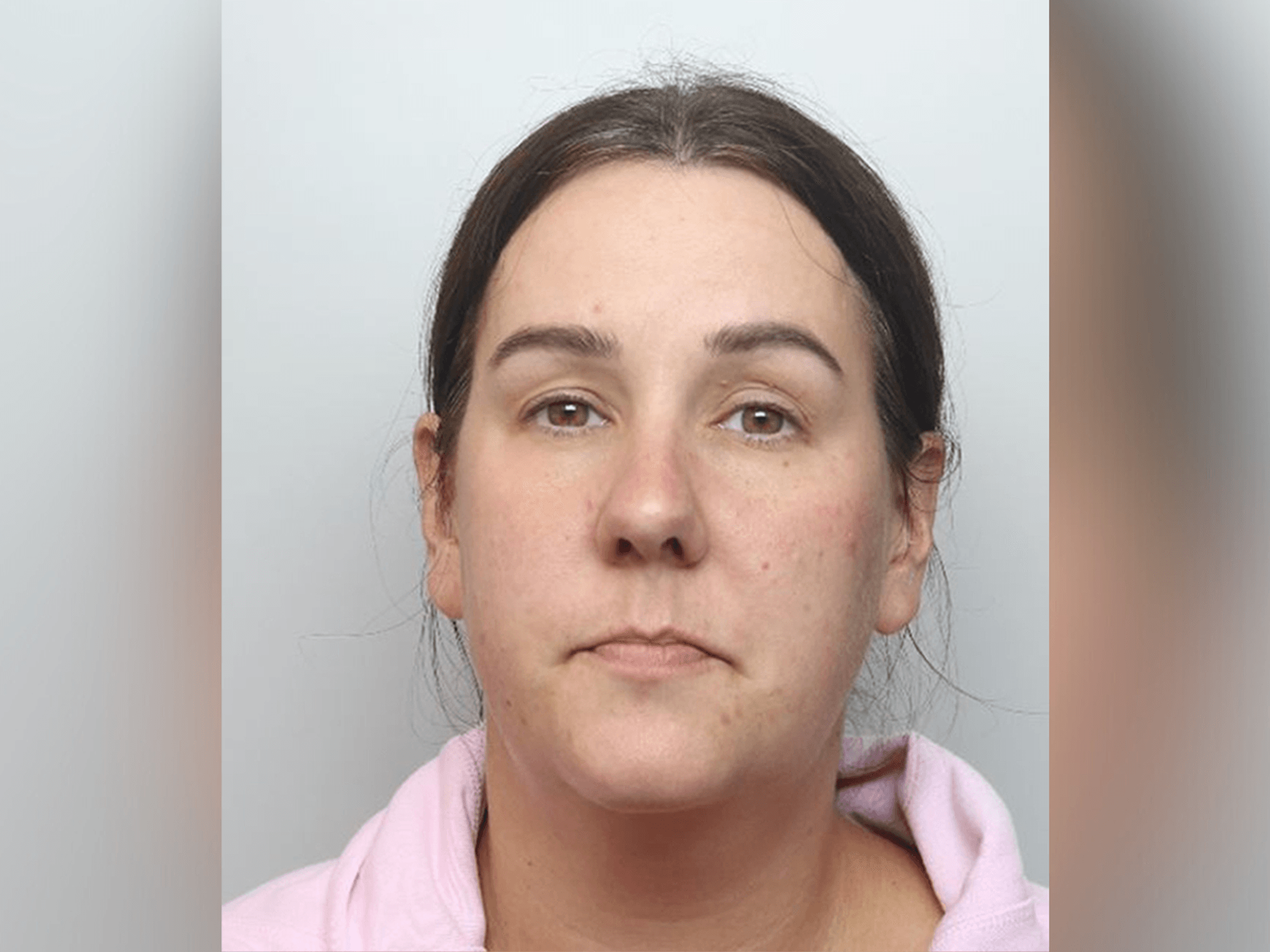Doctor warns vulnerable anorexic teens could take own lives under assisted dying plans
Dr Claud Regnard shared his concerns with GB News as MPs prepare to debate assisted dying for the first time in a decade
Don't Miss
Most Read
Trending on GB News
Sixteen-year-olds suffering from anorexia could be helped to take their own lives under proposed assisted dying legislation, a medical expert has warned.
As MPs prepare to debate an assisted dying bill for the first time in 10 years, a palliative care specialist has warned it could result in vulnerable members of the public being encouraged to end their lives.
The bill has been brought by Spen Valley's Labour MP Kim Leadbeater Labour MP, who believes it would “give terminally ill people a choice at the end of their life”.
However, Dr Claud Regnard, a British doctor who spent 40 years as the medical director of St Oswald’s Hospice, told GB News that “Victorian” legislation could allow someone like "Doctor Death" Harold Shipman to flourish.
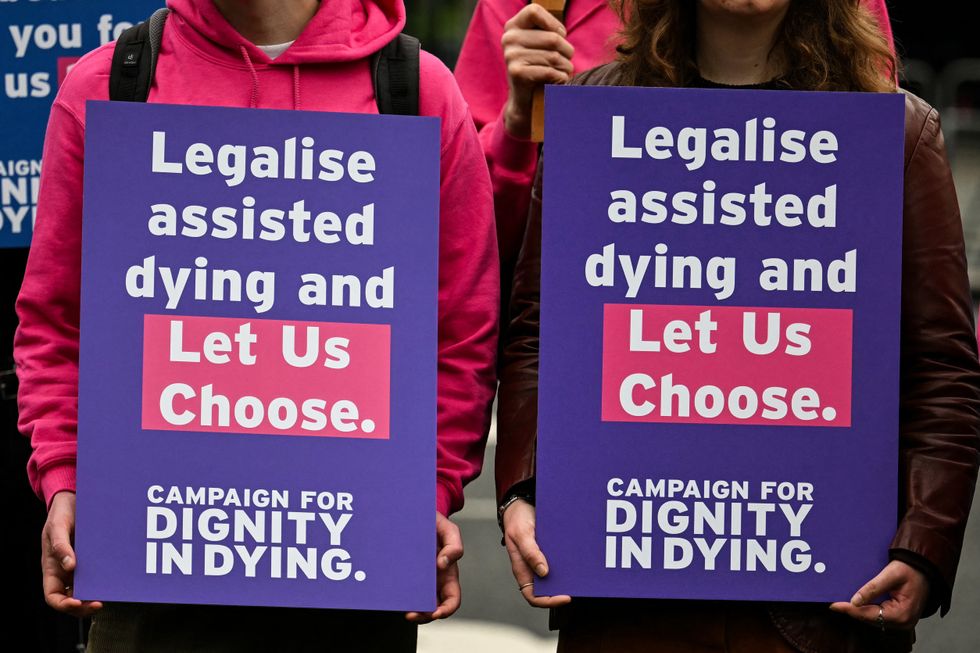 Doctor warns vulnerable anorexic teens could take own lives under assisted dying plans | GETTY
Doctor warns vulnerable anorexic teens could take own lives under assisted dying plans | GETTYNow retired, Regnard still acts as a consultant for St Oswald’s, and runs the research platform Keep Assisted Dying Out of Healthcare (KADOH), which publishes academic data on euthanasia.
Chief among Regnard’s fears is the possibility that euthanasia could be offered to those not experiencing incurable suffering.
Activists have been motivated by a number of tragic cases, including Tony Nicolson's struggle with locked-in syndrome.
However, Regnard warned: “A 16-year-old in Scotland with anorexia nervosa would easily be eligible for assisted death if they said they won’t eat, as that would count as a terminal illness with a prognosis of less than six months- and they wouldn’t have to consult their parents.”
At least 60 people around the world have been officially recorded as having been administered euthanasia for eating disorders, according to a 2024 report by Chelsea Roff and Catherine Cook-Cottone.
LATEST DEVELOPMENTS
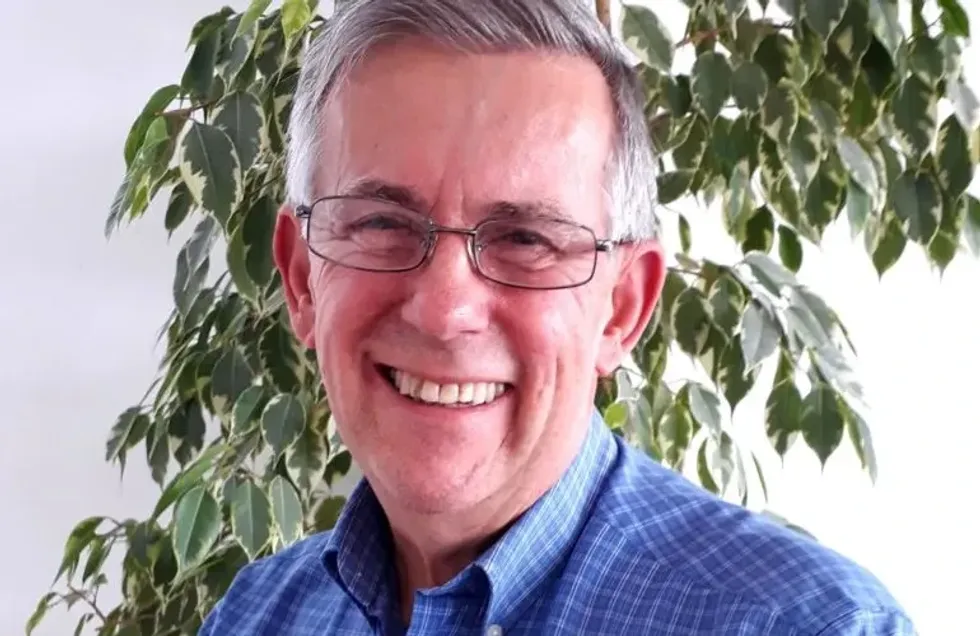
Dr Claud Regnard
|DYING WELL APPG
Roff, who runs an international eating disorder support charity, told GB News: “Physicians in states where assisted death has been legalised have started framing eating disorders as a way to squeeze applications for euthanasia through.
“There have already been proposals for terminal anorexia to be introduced as a new clinical category.”
Roff is concerned by the lack of transparency in such cases. She claimed: “Data on how many people with anorexia have died by assisted suicide euthanasia is sealed off in a black box. In reports, it's hidden under the vague category of ‘other illness’.”
She also expressed worries about other psychological illnesses being used to justify assisted dying, after 17-year-old Milou Verhoof, who suffered from Borderline Personality Disorder, died by euthanasia in the Netherlands in October 2023.
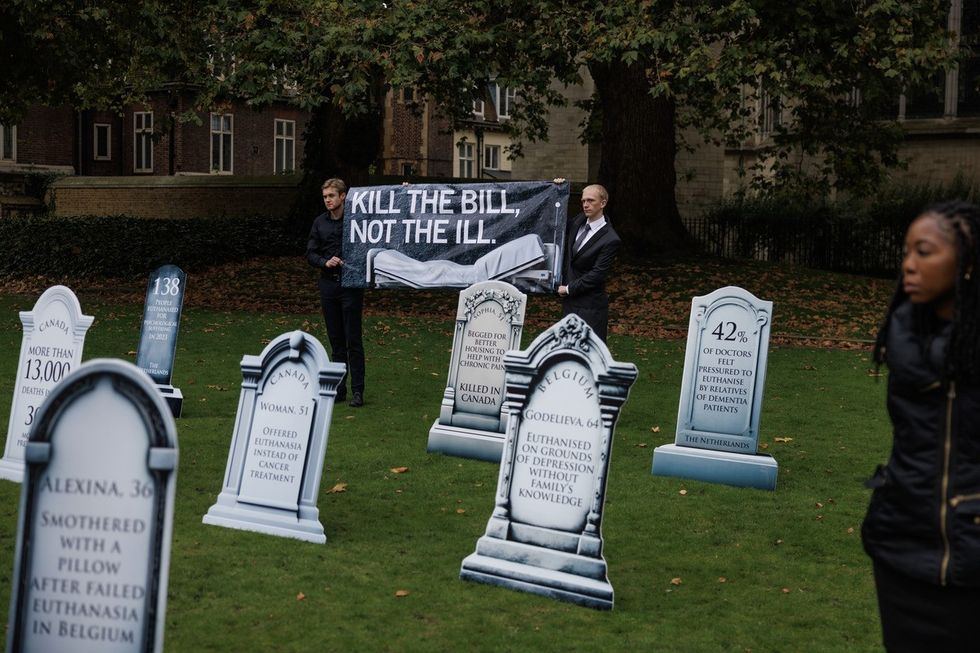
Campaigners near Parliament Square against the proposed bill to legalise assisted dying,
|GETTY
Leadbeater’s legislation would allow mentally competent, terminally ill adults with six months or less left to live, the right to choose to end their lives with medical help.
Regnard has joined the Archbishop of Canterbury in speaking out against the bill. He thinks that the bill gives too much power to doctors, some of whom could have dubious motives.
“Under Kim Leadbeater’s proposal, someone like Harold Shipman would be in his element”, Regnard said.
“He would say ‘the kind thing would be for you to go down this route’, the judge would say ‘have you got the papers? Okay, off you go’.”
Harold Shipman was sentenced to life in jail in 2000, after being suspected of killing over 284 elderly patients over 30 years.
Regnard sees disturbing parallels to Shipman’s case in euthanasia legislation around the world, where individual doctors can be responsible for administering death to hundreds of patients, due to the vast majority of doctors refusing to prescribe lethal drugs.
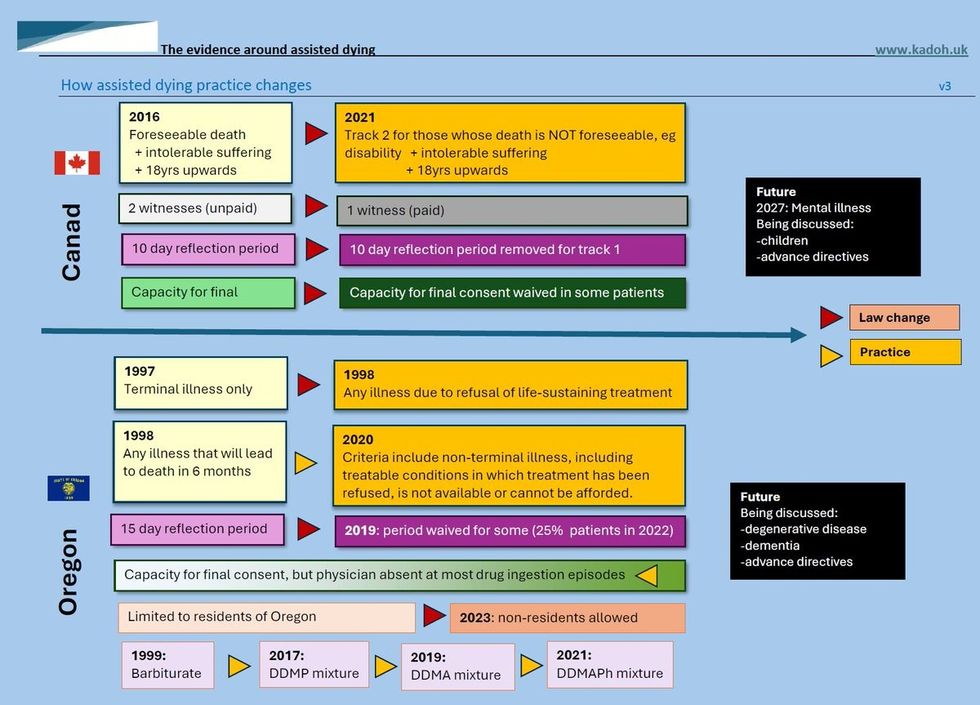
"People forget that Law changes slowly and incrementally, but practice changes extremely quickly if laws allow leeway" said Regnard
|KADOH (Keep Assisted Dying Out of Healthcare)
Once such example is Canadian Dr Ellen Wiebe, who testified in May 2022 that she had at that point already administered 430 deaths, describing it as “the most rewarding work”.
“Having worked in palliative care, I can sort of see how it might be rewarding to alleviate patients’ suffering, but I find the cheerfulness a little disconcerting,” Regnard added.
The medical expert also has concerns that once legislation is passed, laws and practice will go beyond their original limits.
In Oregon and Canada, which legalised assisted dying in 1997 and 2016 respectively, the threshold for receiving euthanasia has dropped considerably.
Oregon has conducted tests with different lethal drugs, and Regnard says these do not involve patient controls. Around 50 per cent of cases exceeded the average time to die of 53 minutes, and in one case it took 137 hours for a patient to die.
Leadbeater has refuted claims that her legislation will create a slippery slope but has called for a serious debate on the matter.
Responding to critics in a letter, Leadbeater said: “If my bill is passed, parliament will have drawn a very clear and settled line that should not be crossed. We have ample evidence from overseas that this can be done.”
“I do not claim this is a simple matter, or that it is possible to achieve a complete consensus on an issue that understandably prompts such strong feelings.
"But nor do I accept that such an important decision about how we reduce suffering at the end of life should sow discord and division.
"I do not want this debate to be conducted in a way that creates wounds we might struggle to heal in the future and I’m sure you agree.”
While a poll shows that two-thirds of Britons support assisted dying, Regnard believes the public do not understand the extent to which euthanasia could be harmful.
“Everyone is talking about choice, but choice is meaningless unless its informed”, he said.
The last time MP’s debated on assisted dying was in 2015, when the bill was introduced by then-Wolverhampton South West MP Rob Marris. Sir Keir Starmer voted in favour of the bill, although it was defeated by 330 to 118 votes.
Anyone can call Samaritans for free on 116 123, email jo@samaritans.org or visit www.samaritans.org, where more information can also be found on volunteering and fundraising for the charity.






